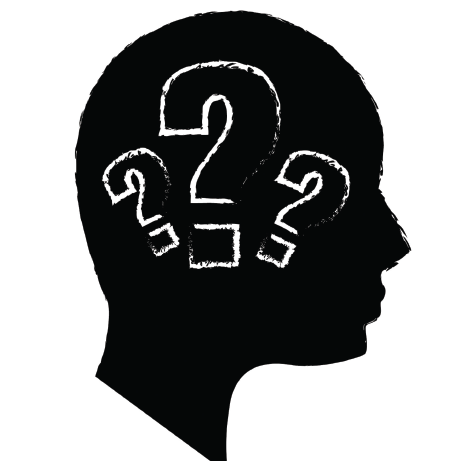
Dot Tech / shutterstock.com
I just didn’t understand.
I was an excellent student. I know this is true of most of you. Given the nature of this publication, most of our readership have graduate degrees. This means that collectively, after completing four years of college, we all made the financially dubious decision to pursue post-graduate education, like lemmings jumping off an academic cliff.
I was valedictorian of my high school class, which comprised 317 students. This was not quite the feat it seemed at the time. In retrospect, I was competing against a relatively small group of like-minded individuals committed to getting into a good college. Most of my classmates had other goals for their high school years.
Regardless, I graduated from high school with proficiency in two romance languages and enough credits from advanced placement courses to skip my freshman and sophomore years at some community colleges.
I say all of this to help you understand why I was so surprised when I couldn’t find my grade.
An august professor of biostatistics once told me that epidemiology is basically an attempt to conduct biostatistical analysis without math. The natural sciences are similarly interrelated. Physics, chemistry and biology can all be used to describe the same phenomena, just from different points of view. Mendel’s pea plants, for example, could be viewed in terms of dominant vs. recessive traits, or the quaternary structure of transcription factors that allows those traits to manifest, or the chemical reaction that produces precisely the right shade of blue for the blossoms.
Given this truth, my college was piloting a new science curriculum, in which biology, chemistry and physics would be integrated, so that we could see how each contributed to our understanding of the natural phenomena all around us. It was an attempt to create a new approach to the sciences that was expected to prime students for novel insights.
Of course, I wasn’t interested.
I was hard core, and this course sequence seemed to come dangerously close to the proverbial rocks for jocks courses designed to allow the athletically (but not academically) gifted to meet an institutional science requirement with minimal exertion. The death knell for me was when they confirmed the sequence was designed to meet pre-med requirements. I immediately knew this was not the class for me. I walked out of that lecture and confidently signed up for the standard chemistry course for students who planned on majoring in chemistry.
Boy, was that a mistake.
Of course, it took me a while to realize it. Before that realization, I did exactly what had always worked for me in high school: showed up to class, took notes and read the textbook. I sat for the first exam feeling pretty good, and I expected my grade would reflect my mastery of the material.
In those days, grades weren’t posted online. Instead, when the tests had been graded, the scores were posted on a bulletin board. To keep everything anonymous, grades were posted in numerical order, from highest to lowest, followed by a nine-digit code every student was assigned for identification, like a Social Security number.
I just didn’t understand why I couldn’t find my grade.
My eyes kept oscillating back and forth at the top of the sheet, but I seemed to be absent from the list. I stole a furtive look at my identification card. Was I looking for the right number? Was I looking at the right list? Was there an administrative error?
In a final act of desperation, I started to look through the entire list of grades. That’s when I found my identification number and grade, precisely where they belonged, just below the mean.
The Double Curse
In 1999, psychologists David Dunning, PhD, and Justin Kruger, PhD, conducted four experiments in which they asked college students to estimate their performance on tests of humor, grammar and logic.1 In this paper, they made two seminal observations:
- Students who perform poorly overestimate their performance; and
- Students who perform well underestimate their performance.
Crucially, the Dunning-Kruger effect does not mean the incompetent students think they are performing better than the competent students; the incompetent students are just prone to thinking they are performing better than they actually are.
Dunning and Kruger explained this phenomenon as follows:
People hold overly favorable views of their abilities in many social and intellectual domains … [T]his overestimation occurs, in part, because people who are unskilled in these domains suffer a dual burden: Not only do these people reach erroneous conclusions and make unfortunate choices, but their incompetence robs them of the metacognitive ability to realize it.
Metacognition is the ability to observe oneself objectively, like the ability to look in the mirror with a critical eye. This is harder than it may seem at first blush. If we were honest, we would likely admit that when we look in a mirror, our eyes merely graze over the features we don’t like, blurring the bumps and blemishes. Similarly, our gaze is distorted when we look with our mind’s eye. We see what we want to see.
The Dunning-Kruger effect comes with a double curse: People who perform poorly are unable to judge their own performance accurately and, therefore, are robbed of the knowledge they need to improve.2
People who perform poorly are unable to judge their own performance accurately &, therefore, are robbed of the knowledge they need to improve.
Experts, on the other hand, are prone to giving everyone the benefit of the doubt. It’s not that experts don’t recognize their own expertise. They just tend to overestimate the expertise of those around them. Experts assume what comes naturally to them should also come naturally to others. So when experts discount their own expertise, it’s not false modesty. It just doesn’t occur to them that they’re doing anything special.
The opposite of the Dunning-Kruger effect is said to be imposter syndrome, which Psychology Today describes as follows: “People who struggle with imposter syndrome believe that they are undeserving of their achievements and the high esteem in which they are, in fact, generally held. They feel that they aren’t as competent or intelligent as others might think—and that soon enough, people will discover the truth about them. Those with imposter syndrome are often well accomplished; they may hold high office or have numerous academic degrees.”3
Sound familiar?
Educating Dunning-Kruger
For those of you who have read this far but still don’t understand how the Dunning-Kruger effect impacts your lives, I refer you to the comedian Ronny Chieng. In his Netflix special Speakeasy, he describes the anti-vaxxer phenomenon thus:4
I feel like 2021 was the year that people who peaked in high school really found their voice on the internet. … All these … D-average students who lack basic reading comprehension skills demanding PhD-level evidence on virology. What could you ever show them that would be enough?… I appreciate the sentiment of wanting to understand and having critical thinking skills, but [given] the amount of background knowledge you need to know to get to this point, it’s a little late in the game to be getting into the knowing business …
If you’ve ever had a frustrating conversation about coronavirus vaccinations with a patient who did his own research, I hope you can take solace in knowing you were likely watching the Dunning-Kruger effect in action. Many of the never vaxxers are simply ignorant of their ignorance.
Other examples of the Dunning-Kruger effect are all around us:5
- 90% of faculty at the University of Nebraska rated their teaching skills as above average;
- 42% of software engineers rated themselves as belonging in the top 5% of their field;
- 70% of students believe they possess above-average leadership skills; and
- 67% of Americans with low financial literacy rated themselves as belonging in the top tier.
The Dunning-Kruger effect is directly relevant to medical education. Multiple studies have demonstrated that medical students, interns and residents in general surgery, family medicine and psychiatry are poor judges of their own performance.6 This is problematic because a recognition of one’s own shortcomings is a crucial component to self-improvement. And, because we are talking about physicians, lives are at stake, often literally. The lowest performing physicians:
- Rank their own performance higher than the performance of their peers;7
- Are least likely to accept objective feedback regarding their performance;8
- Are unlikely to perceive negative feedback as accurate or helpful;9 and
- Are likely to question the validity of negative feedback.7
How should program directors incorporate the Dunning-Kruger effect into their approach to medical education? Mariam Rahmani, MD, program director for child and adolescent psychiatry at the University of Florida, Gainesville, makes the following suggestions:10
- Realize that self-assessments may underestimate or overestimate one’s mastery of the material;
- Supplement self-assessments with external assessments from peers and patients;
- Understand that overconfident trainees may require feedback from a variety of sources and setting objective goals; and
- Know that underconfident trainees should be taught to tolerate self-doubt, and work toward building a positive self-image.
The Dunning-Kruger effect also highlights the importance of objective tests of knowledge. In-training examinations and other standardized tests may be imperfect, but they also shine a light on truths that learners may not be able to see on their own.
Finally, the Dunning-Kruger effect is a reminder to all of us to remain circumspect about what we think we know. “The effect is about us, not them,” Dr. Dunning notes. “The lesson of the effect was always about how we should remain humble and cautious about ourselves.”11
 Philip Seo, MD, MHS, is an associate professor of medicine at the Johns Hopkins University School of Medicine, Baltimore. He is director of both the Johns Hopkins Vasculitis Center and the Johns Hopkins Rheumatology Fellowship Program.
Philip Seo, MD, MHS, is an associate professor of medicine at the Johns Hopkins University School of Medicine, Baltimore. He is director of both the Johns Hopkins Vasculitis Center and the Johns Hopkins Rheumatology Fellowship Program.
References
- Kruger J, Dunning D. Unskilled and unaware of it: How difficulties in recognizing one’s own incompetence lead to inflated self-assessments. J Pers Soc Psychol. 1999 Dec;77(6):1121–1134.
- Dunning-Kruger effect. Psychology Today. [n.d.].
- Imposter syndrome. Psychology Today. [n.d.].
- Ronny Chieng: Speakeasy. Netflix. 2022.
- Mathers C. 7 Dunning Kruger effect examples in your life. Develop Good Habits. 2021 Jan 13.
- Barnsley L, Lyon PM, Ralston SJ, et al. Clinical skills in junior medical officers: A comparison of self-reported confidence and observed competence. Medical Education. 2004; 38(4):358–367.
- Violato C, Lockyer J. Self and peer assessment of pediatricians, psychiatrists and medicine specialists: Implications for self-directed learning. Adv Health Sci Educ Theory Pract. 2006 Aug;11(3):235–244.
- Hodges B, Regehr G, Martin D. Difficulties in recognizing one’s own incompetence: Novice physicians who are unskilled and unaware of it. Acad Med. 2001 Oct;76(10 Suppl):S87–S89.
- Sargeant J, Mann K, Sinclair D, et al. Understanding the influence of emotions and reflection upon multi-source feedback acceptance and use. Adv Health Sci Educ Theory Pract. 2008 Aug;13(3):275–288.
- Rahmani M. Medical trainees and the Dunning–Kruger effect: When they don’t know what they don’t know. J Grad Med Educ. 2020 Oct;12(5):532–534.
- Jarry J. The Dunning-Kruger effect is probably not real.. McGill University, Office for Science and Society. 2020 Dec 17.


